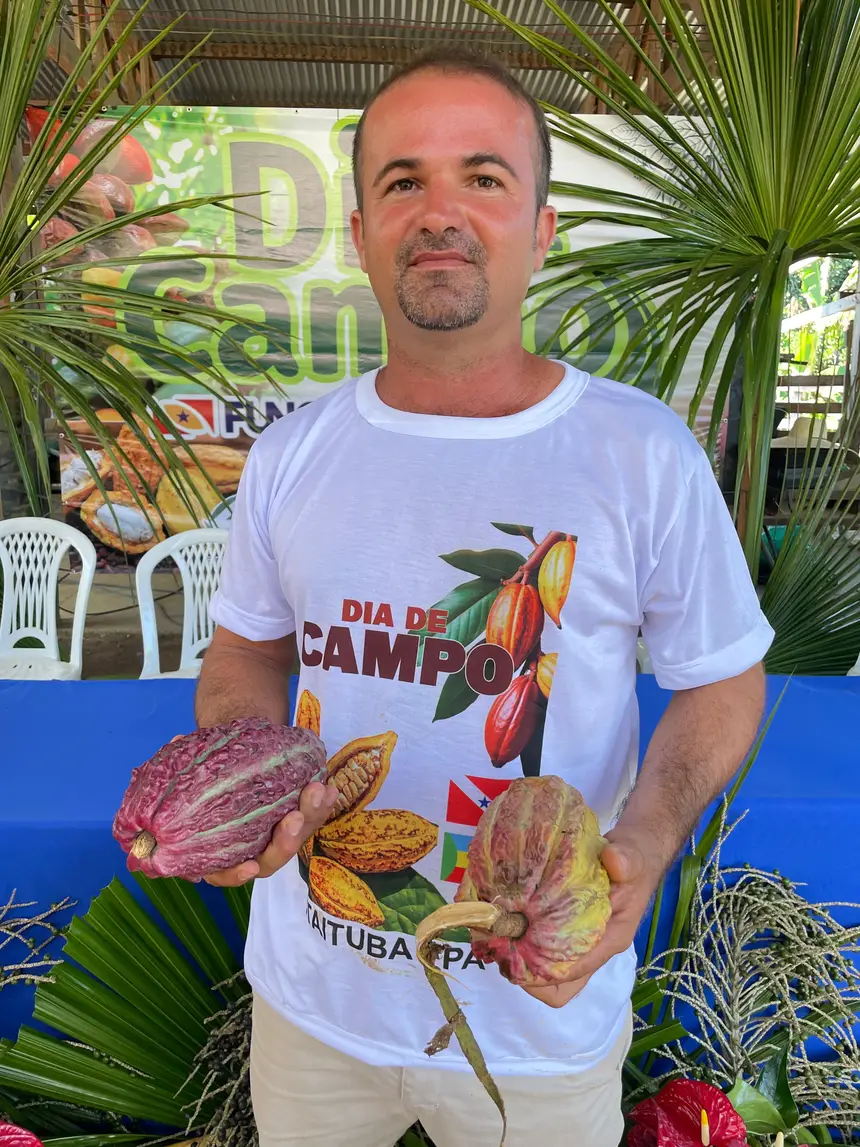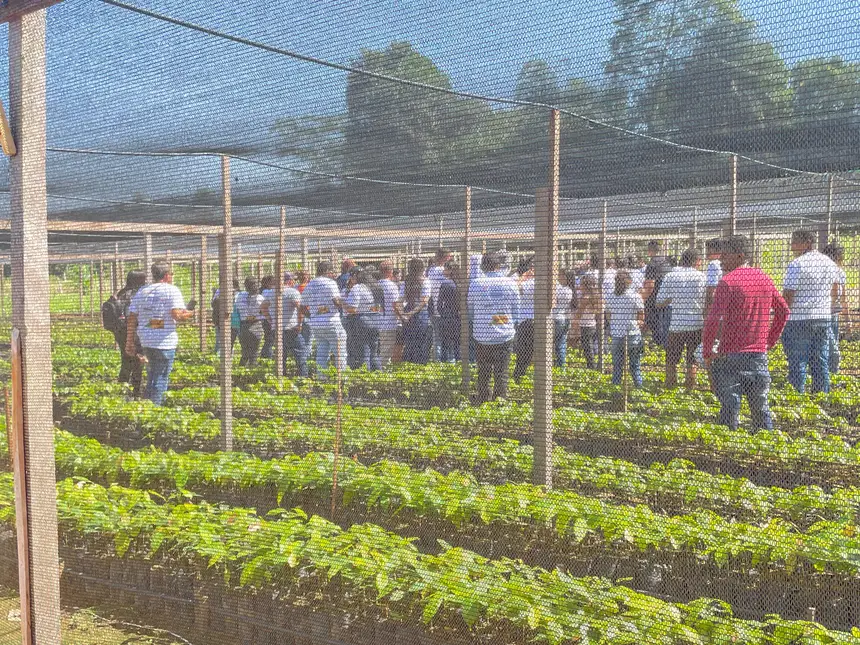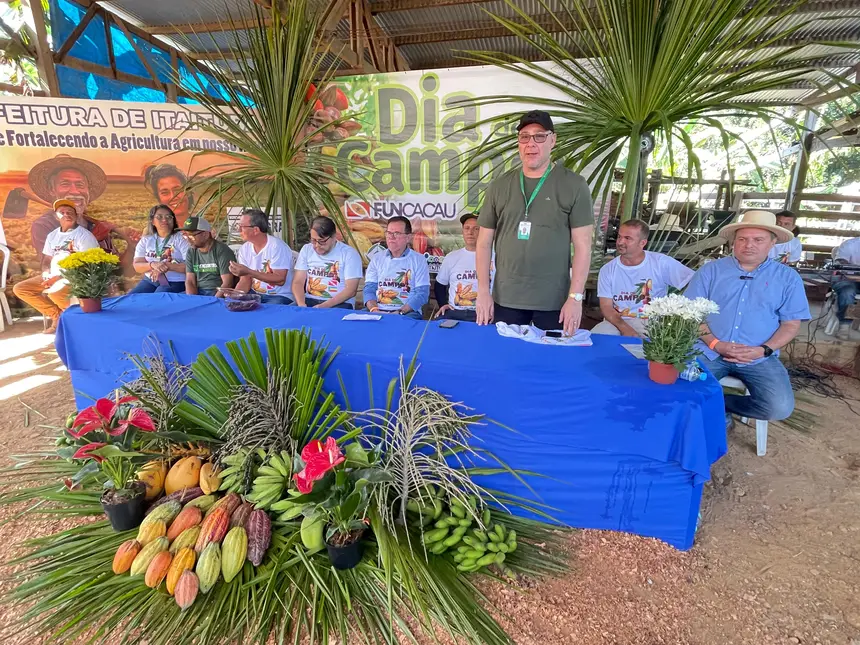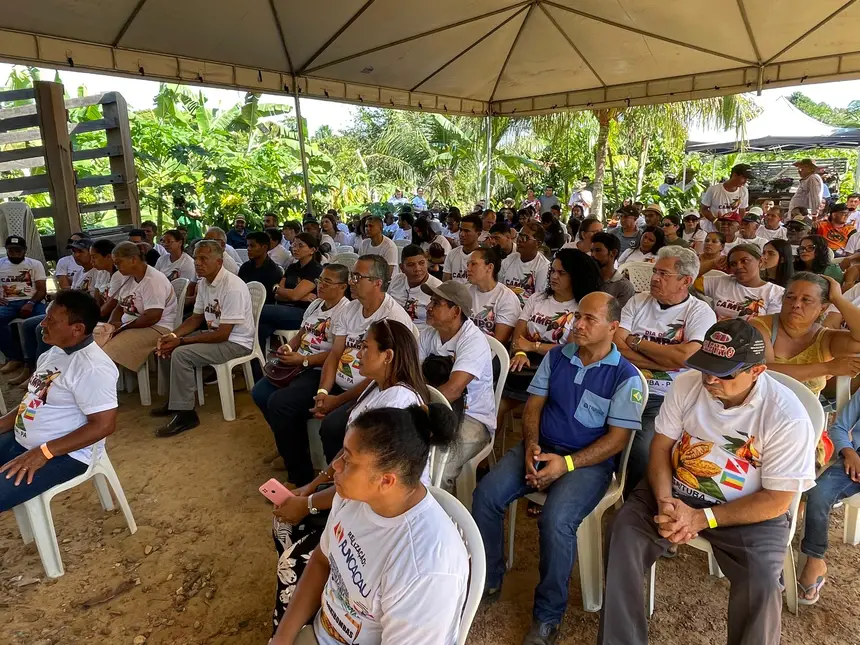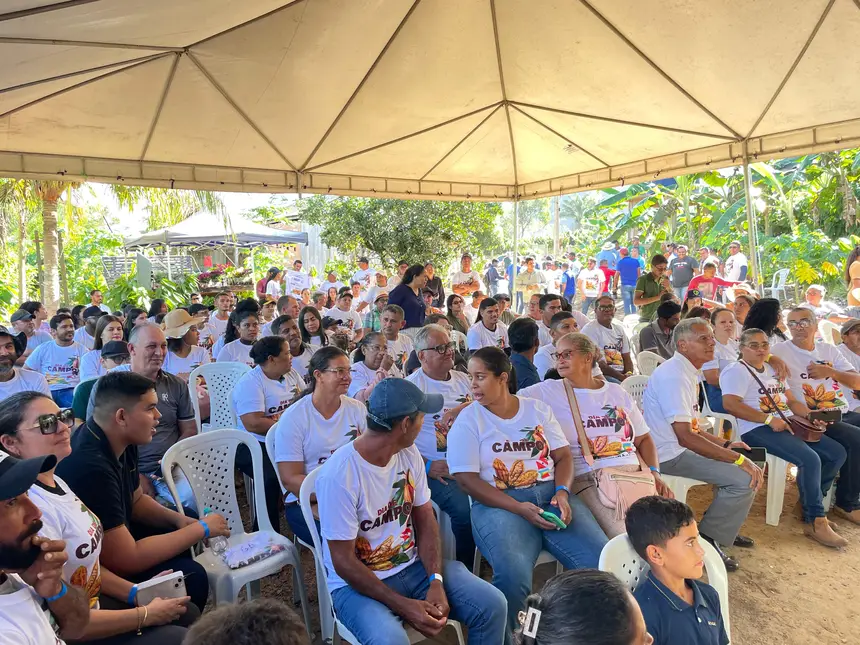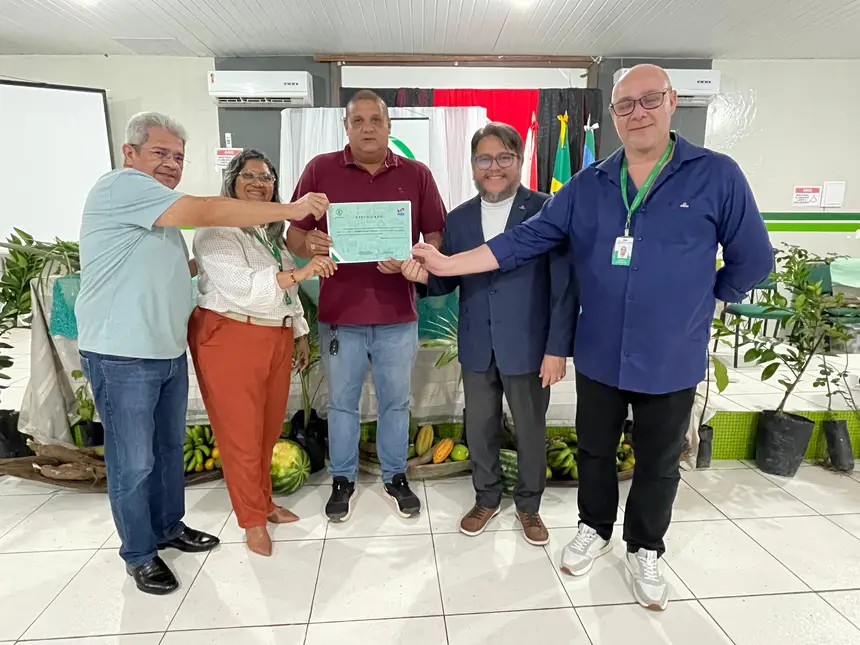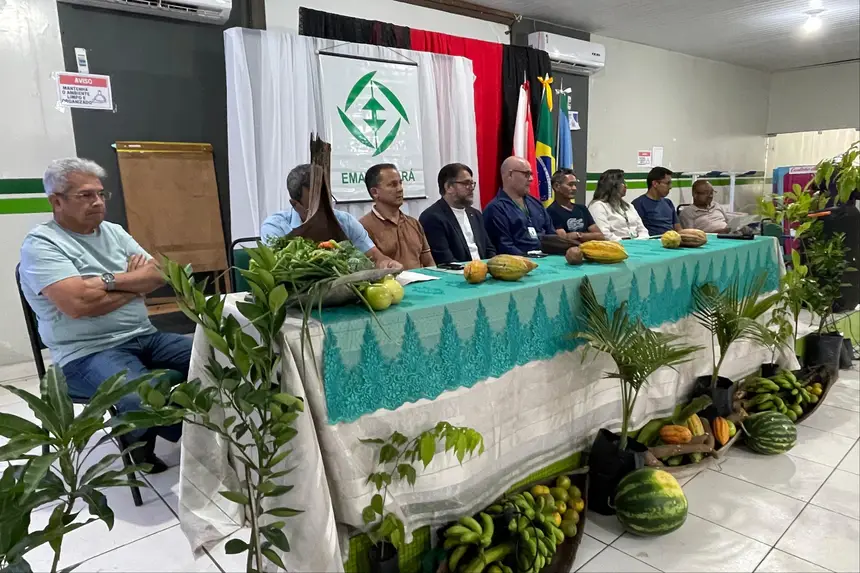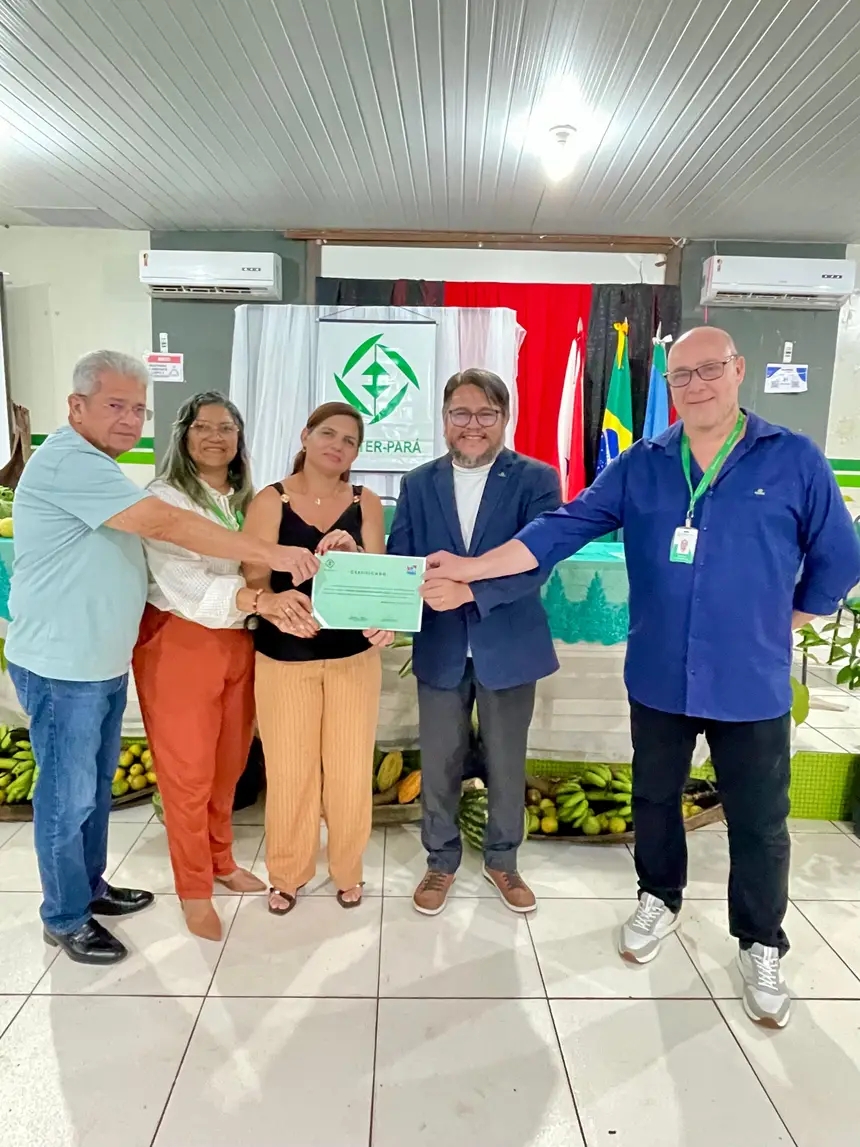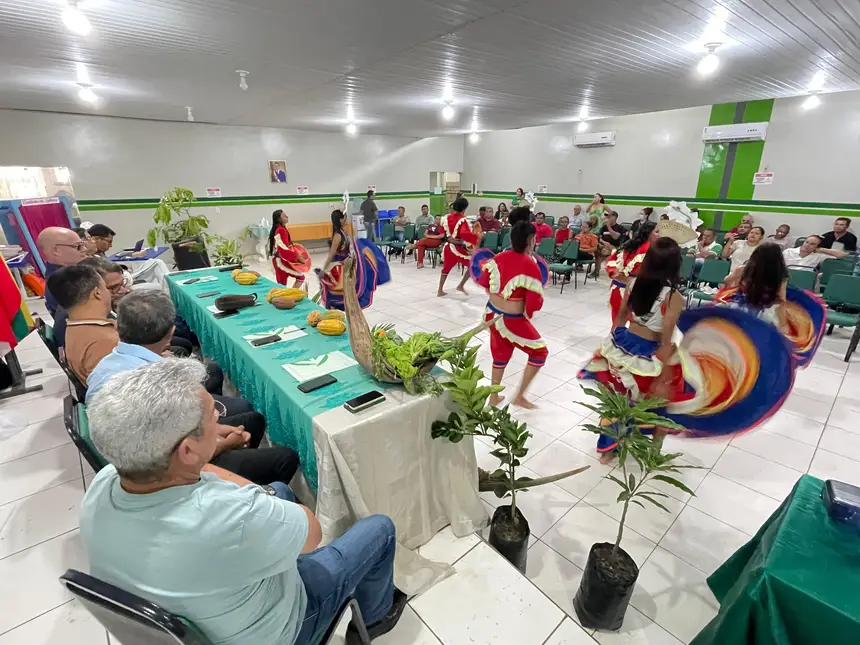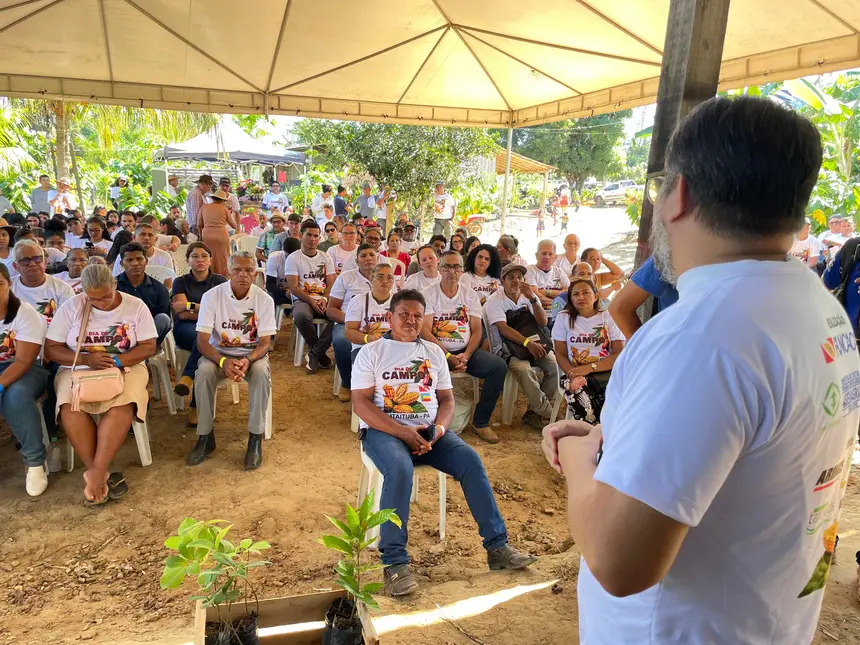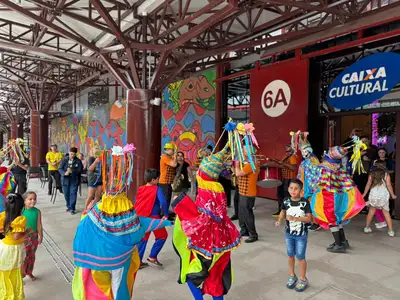Emater holds I Regional Ater Seminar in Itaituba focusing on sustainable agriculture and climate justice
The event highlighted cocoa cultivation as a viable alternative for income generation and recovery of degraded areas in southwestern Pará
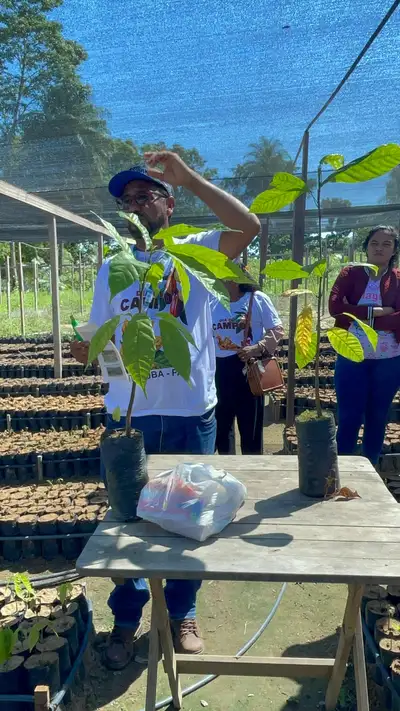
With the aim of promoting sustainable alternatives for rural development, the Government of Pará, through the Technical Assistance and Rural Extension Company of the State of Pará (Emater-Pará), held the I Regional Ater Seminar on August 20 and 21 in Itaituba, in the southwest of the state. The initiative had the theme "Green Gold, Sustainable Agriculture as an Alternative for Job Creation, Income, and Climate Justice."
The program brought together rural producers, technicians, managers, and partners to discuss strategies for productive diversification, encouragement of sustainable agriculture, and appreciation of local production chains. The proposal is to contribute to the recovery of areas previously impacted by illegal mining and to promote a new economic and environmental perspective for the region.
Dialogue, training, and recognition
The first day of the event took place in the auditorium of the Municipal Education Secretariat (Semed), featuring cultural presentations and technical lectures. Ubiratan Pina, an extension worker from Emater-Pará, addressed the role of public technical assistance in building sustainable agriculture. Extension worker Sidevaldo Santana, a cocoa cultivation specialist, presented the economic, social, and environmental viability of cocoa cultivation as a productive alternative.
During the program, extension workers from the region were honored with certificates of recognition for their work in strengthening family farming and rural extension in the state.
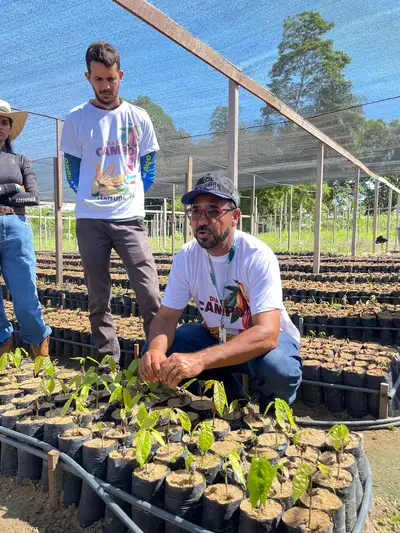
“The proposal of the program is to generate a movement of socioeconomic and environmental transformation, recognizing the countryside as a source of lasting wealth, preserving the environment and ensuring quality of life for current and future generations,” highlighted Cristiane Corrêa, technical coordinator of Emater-Pará. “In this space of construction and dialogue, we have the possibility of exchanging knowledge, experiences, and practical solutions for strengthening sustainable agricultural production in the region,” she added.
Field day reinforces practice and technology
On the second day, about 300 producers participated in a field day on Grafted Cocoa, held on the North-South Road in the Miritituba District. The activity was conducted at the União e Progresso Farm, owned by farmer Joelson Freitas, who shared his experience with cocoa cultivation after guidance from Emater.
“Two years ago, I learned about a cocoa plantation with the Emater technicians, and today I have the opportunity to be an example of planting here on my farm. I have already started production and hope it serves as an example for other producers. My area was degraded due to mining, and it has been recovered, becoming a sustainable source and a benefit to nature,” reported Joelson.
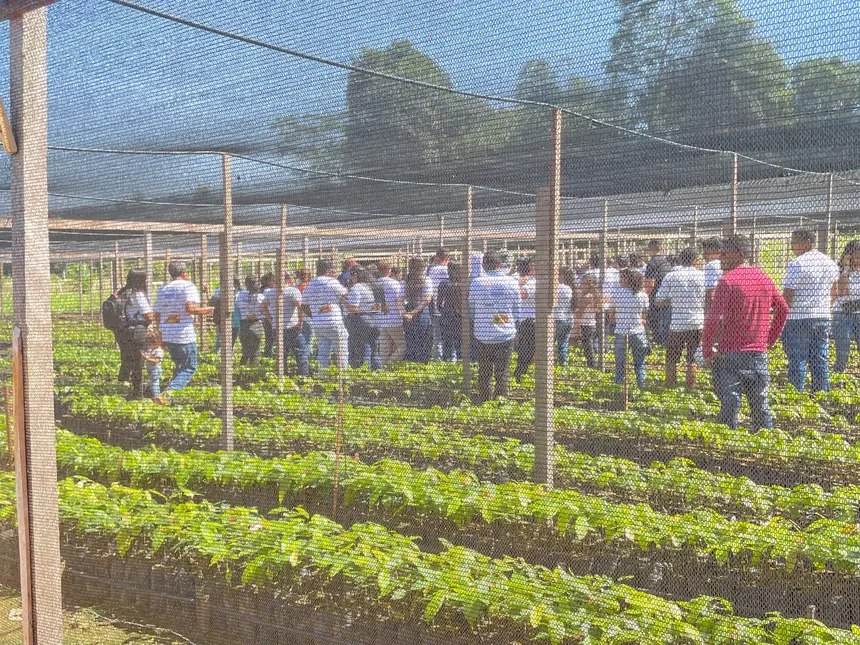
During the field day, participants were able to learn about nursery management techniques, seedling selection, use of substrates, suitable containers, and good practices in cocoa production.
Commitment to sustainable development
The seminar was supported by the Cocoa Support Fund of the State of Pará (Funcacau), the City Hall of Itaituba, the Municipal Secretariat of Development, Agriculture, and Fisheries, the State Secretariat of Agricultural Development and Fisheries (Sedap), and other partners.
For the president of Emater-Pará, Dr. Joniel Abreu, the action represents the strengthening of public policy for technical assistance in the field.
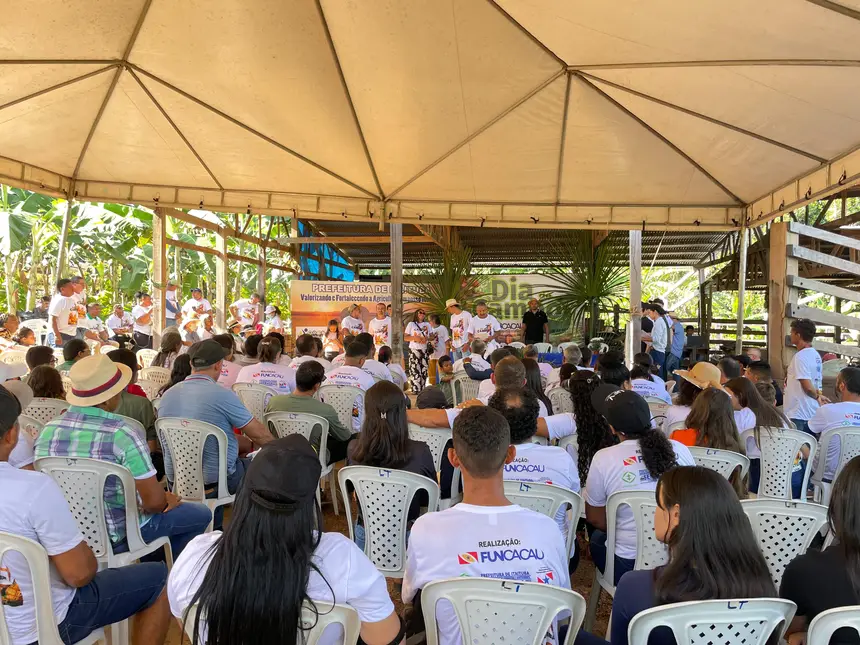
“An alternative was presented to the municipality through cocoa cultivation for the economic turnaround in the Itaituba region, showing that the solution for recovery lies in 'green gold,' which is above the land. It is yet another way to demonstrate that rural extension reaches the rural worker, in a proposal that guarantees employment and income generation for these families sustainably, transforming lives, boosting the economy, and helping nature,” stated the president.


